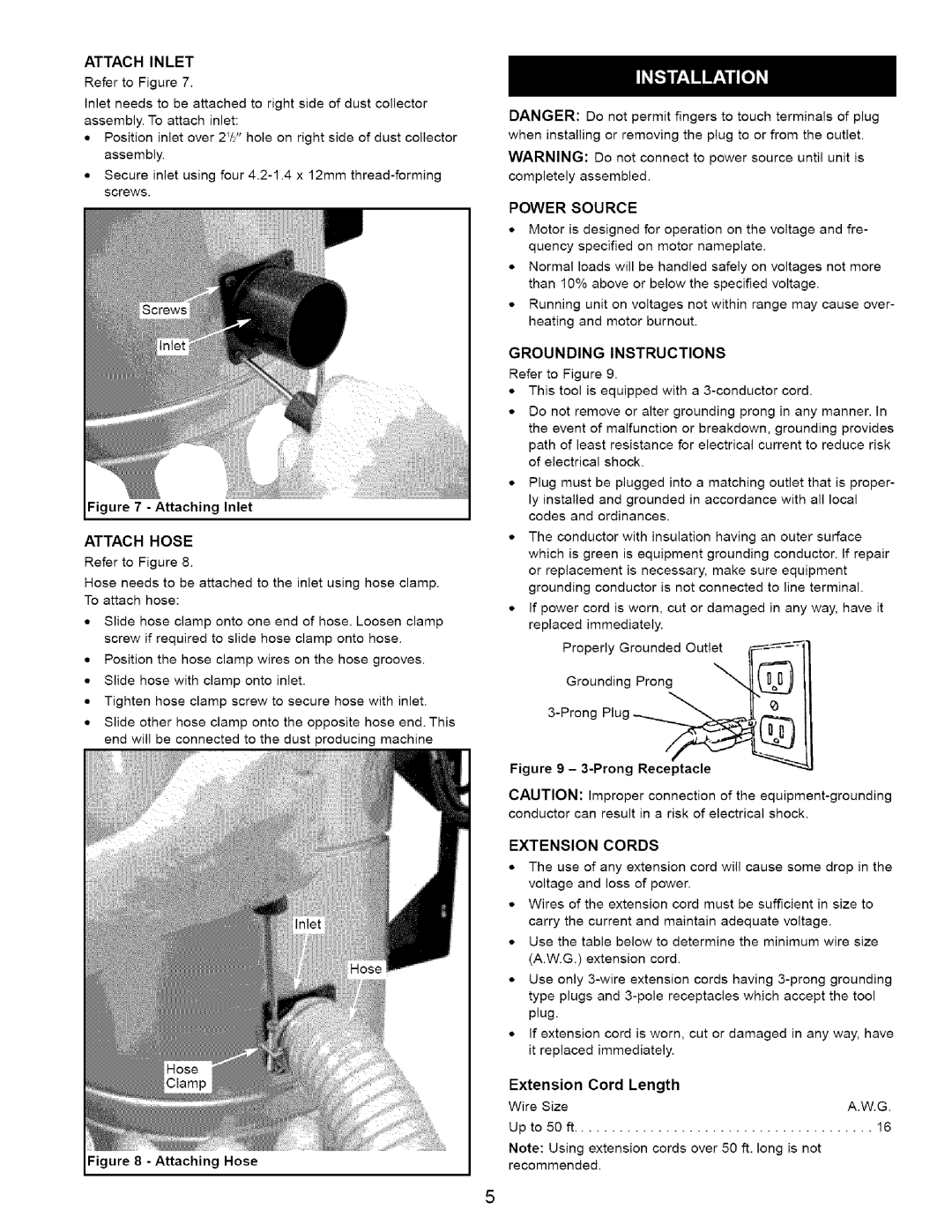
ATTACH INLET
Refer to Figure 7.
inlet needs to be attached to right side of dust collector assembly. To attach inlet:
•Position inlet over 2W' hole on right side of dust collector assembly.
•Secure inlet using four
Figure 7 - Attaching Inlet
ATTACH HOSE
Refer to Figure 8.
Hose needs to be attached to the inlet using hose clamp. To attach hose:
•Slide hose clamp onto one end of hose. Loosen clamp screw if required to slide hose clamp onto hose.
•Position the hose clamp wires on the hose grooves.
•Slide hose with clamp onto inlet.
•Tighten hose clamp screw to secure hose with inlet.
•Slide other hose clamp onto the opposite hose end. This end will be connected to the dust producing machine
Figure 8 - Attaching Hose
DANGER: Do not permit fingers to touch terminals of plug when installing or removing the plug to or from the outlet. WARNING: Do not connect to power source until unit is completely assembled.
POWER SOURCE
•Motor is designed for operation on the voltage and fre- quency specified on motor nameplate.
•Normal loads will be handled safely on voltages not more than 10% above or below the specified voltage.
•Running unit on voltages not within range may cause over- heating and motor burnout.
GROUNDING INSTRUCTIONS
Refer to Figure 9.
•This tool is equipped with a
•Do not remove or alter grounding prong in any manner. In the event of malfunction or breakdown, grounding provides path of least resistance for electrical current to reduce risk of electrical shock.
•Plug must be plugged into a matching outlet that is proper- ly installed and grounded in accordance with all local codes and ordinances.
•The conductor with insulation having an outer surface which is green is equipment grounding conductor. If repair
or replacement is necessary, make sure equipment grounding conductor is not connected to line terminal.
•If power cord is worn, cut or damaged in any way, have it replaced immediately.
Properly Grounded Outlet
Grounding Prong
Figure 9 - 3-Prong Receptacle
CAUTION: improper connection of the
EXTENSION CORDS
•The use of any extension cord will cause some drop in the voltage and loss of power.
•Wires of the extension cord must be sufficient in size to carry the current and maintain adequate voltage.
•Use the table below to determine the minimum wire size (A.W.G.) extension cord.
•Use only
type plugs and
•If extension cord is worn, cut or damaged in any way, have it replaced immediately.
Extension | Cord Length | |
Wire | Size | A.W.G. |
Up to | 50 ft | 16 |
Note: | Using | extension cords over 50 ft. long is not |
recommended. |
| |
